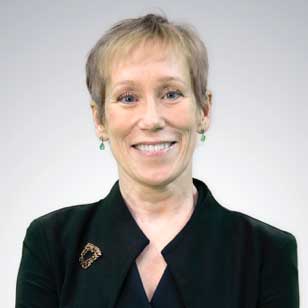Day One: Tuesday, February 16, 2021
10:00 EST
15 minWelcome and Opening Remarks from the Chair
Geoff Dubrow, Consultant, Public Financial Management, Gender Equality and Governance
10:15 EST
45 minGender Dimensions of Covid 19 - A Feminist Economic Recovery Plan
Zohra Khan, Global Policy Advisor, Governance & National Planning, UN Women
- How Covid magnifies pre-existing social divisions
- The relationship between identity and health
- The way identity categories such as gender, race and ability interconnect to create discriminatory systems that impact individuals in different ways
- Assessing how various groups experience policies, programs and initiatives
- Need for data collection beyond age and sex
- Covid economic response plan
- Investment to assist women facing violence or abuse in the home, eg. bolster women’s shelter
- Impact of over representation of women in charitable and non-profit, front line and social service occupations
- Challenges of self isolation
11:00 EST
45 minGBA+ Considerations for Transgender People
Transgender people face substantial challenges and barriers navigating workplaces, public spaces, and government services and programs. Their unique and often invisible issues are beginning to be considered as part of GBA+ analyses, but organizations are frequently hesitant or fearful of making mistakes. This session seeks to address these concerns by exploring:
- Five key areas where trans people consistently experience challenges
- How to identify and address data gaps?
- Nuances of consultation – what methods work better than others for trans people?
- Stats and stories of what happens when trans people are not considered
- Broad benefits of trans inclusion in policy and program development
11:45 EST
45 minWhat’s New in Collection and Use of Sex and Gender Information Practices?
- Issues arising where an individual’s gender identity and lived experience doesn’t align with sex at birth
- How government uses sex and gender information to administer programs, analyze demographics, set gender equity policy objectives and issue documents
- How is the current approach contributing to problems faced by transgender, non-binary, and two-spirit individuals
- Aligning federal and provincial information practices
- New data collection and accommodation practices
- New StatsCan standards
- Developing a framework for a government-wide policy direction
- Departmental review of existing information practices against the policy
12:30 EST
45 minBreak
13:15 EST
45 minHow Front End Work On Contribution Agreements Can Generate GBA+ Considerations at ACOA
Richard Cormier, Director, Communities and Inclusive Growth, Atlantic Canada Opportunities Agency
ACOA works closely with clients applying for funding. Greater understanding of the client’s unique circumstances, environment and needs, including regional issues and the unique community dynamics surrounding a project will affect how the project can achieve success.
This discussion will touch upon the following:
- How this up-front work generates and incorporates GBA+ considerations that contribute to successful outcomes
- Who will the project impact, who might it leave out? Can negative differential impacts be mitigated? and
- Dealing with rural communities, rural women business owners, indigenous women entrepreneurs and any number of intersecting identitie
14:00 EST
15 minBreak
14:15 EST
60 minGathering the Data You Need
The Centre for Gender, Diversity and Inclusion Statistics at Statistics Canada aims to address statistical information gaps in the areas of gender, sex and their intersecting identity characteristics. This presentation will discuss
- The role of the Centre
- How it supports users with quality data and analytic results on issues related to gender and diversity and the services that the Centre offers
- Standardized measures of diverse population groups, that allows for comparability of data
- Some of the new methods that Statistics Canada has adopted to respond to data needs related to COVID-19 especially initiatives to develop disaggregated data to support policy and program
- Analytical products that have been released through the Gender, Diversity and Inclusion Statistics Hub, focusing on the economic, health and social situation of diverse population groups
15:15 EST
45 minIntegrating GBA+ in the Evaluation Process
- How does the evaluation function provide an opportunity to rigorously examine considerations related to gender and intersecting identity factors?
- How can an evaluation offer ways to further improve design and implementation of the policy or program?
- What is the role of evaluation in the project management cycle and GBA+?
- Integrating GBA+ into the approach and methodology
- Considering diverse target population groups
- Addressing gender and other intersecting factors
- Identifying any limitations related to GBA+, the impact of those limitations, and how they could have been mitigated to ensure the validity and reliability of findings
- Identifying areas for action and impact on diverse target population groups
- From the evaluator’s perspective: Developing capacity in the evaluation function for GBA+
- From the evaluator’s perspective: Challenges and ways forward
16:00 EST
End of Day One
Day Two: Wednesday, February 17, 2021
10:00 EST
15 minWelcome and Opening Remarks from the Chair
Geoff Dubrow, Consultant, Public Financial Management, Gender Equality and Governance
10:15 EST
45 minEnvironmental and Community Health Impacts of Intensive Resource Extraction on Rural, Remote, Northern and Indigenous Communities In Canada
Dr. Maya Gislason, Faculty of Health Sciences, Simon Fraser University
- Impacts of climate change on diverse populations
- The intersections between public health and intensive resource extraction
- Interconnection between human, animal and ecosystem health
- Developing Equity, Diversity and Inclusion (EDI) informed evidence generating tools
- Intersectionality research and Gender-Based Analysis Plus approaches to policy formation and evidence building
11:00 EST
45 minAcquiring the Required Information Through the Consultation Process
Geoff Dubrow, Consultant, Public Financial Management, Gender Equality and Governance
- Value of the consultation process
- When is it appropriate to consult?
- Types of consultation
- Surveys, roundtable, key person interviews etc.
- Designing the public consultation process
- Involving the relevant participants
- Ensuring all participants/views in the community are heard
- What are the risks you may face in the consultation process
- How to mitigate against risk in the consultation process
- Making best use of the resulting data
11:45 EST
45 minGender Sensitive Legislation: What Is It and Why is it Worth Pursuing?
- Legislation and regulations are key to policy implementation
- The gendered effects of legislation and regulations need to be scrutinised throughout the policy/legislation cycle to avoid unwanted impact
- Gender sensitive scrutiny of legislation can make legislation effective and promote gender equality goals
12:30 EST
45 minBreak
13:15 EST
45 minEquity Responsive Budgeting at the City of Toronto: Making it matter
- What is Equity Responsive Budgeting in a municipal context?
- City of Toronto’s approach to embedding Equity Responsive Budgeting into the budget process
- Working with equity experts and community to advance equity
14:00 EST
45 minDigital, Data and GBA+
- GBA+ in British Columbia
- Power structures and assumptions
- How to incorporate GBA+ into digital government
- How bad data can impact lives
- Solving pre-existing data gaps for gender, ethnicity, geography, education, sexual orientation etc.
14:45 EST
15 minBreak
15:00 EST
45 minPay Equity: Impact on GBA+
Karen Jensen, Federal Pay Equity Commissioner, Canadian Human Rights Commission
- Pay equity as a tool for economic recovery
- Pay equity issues for women with intersectional backgrounds, with a focus on gender identity issues.
15:45 EST
30 minTake-Aways, Wrap Up and Q & A
Geoff Dubrow, Consultant, Public Financial Management, Gender Equality and Governance
16:15 EST
End of Day Two









